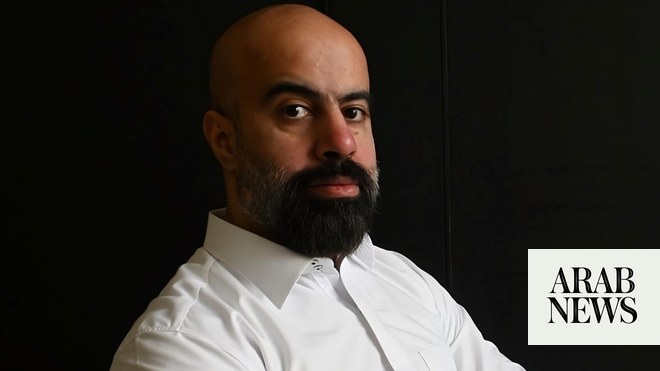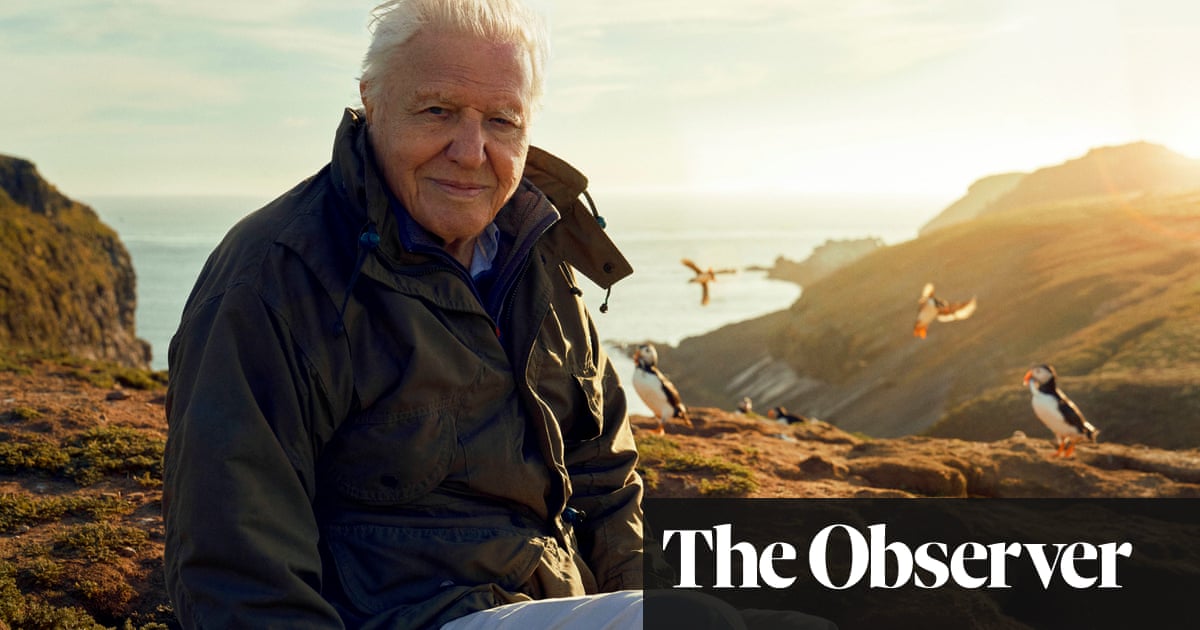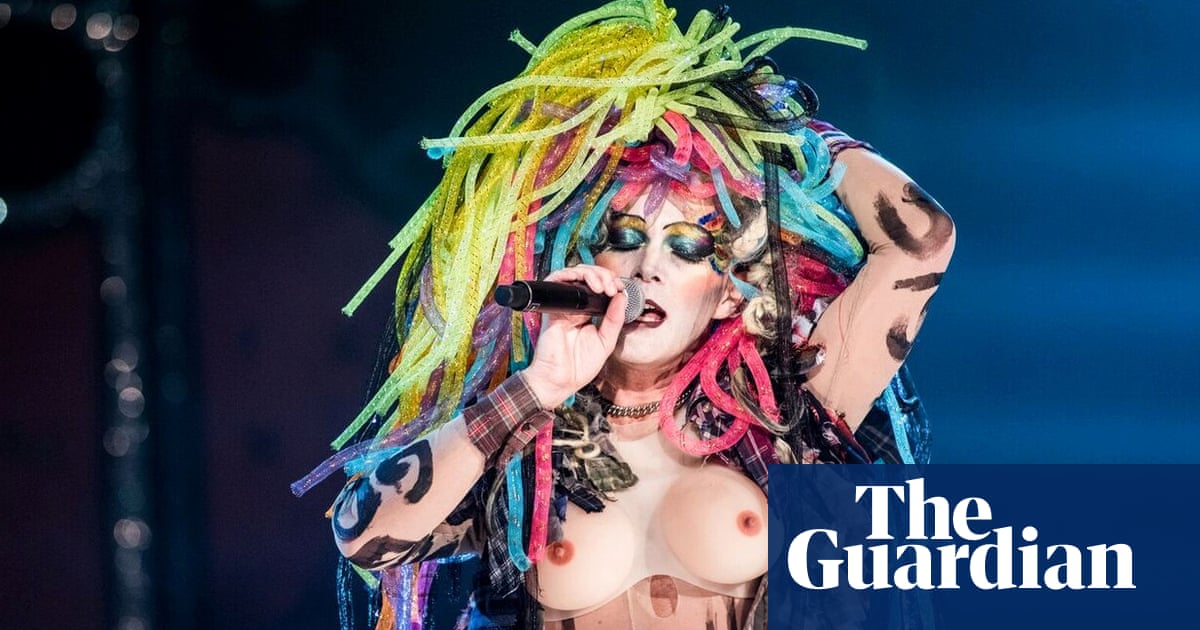
Caravaggio, Michelangelo, Cher … many of our finest artists are known by mononyms. South Korean-born American film-maker Kogonada may not be quite as much of a household name (yet), but he’s a name worth getting to know.
His latest film, After Yang, is about a father (Colin Farrell) desperately seeking answers when his daughter’s robot older brother (Justin H Min) shuts down unexpectedly. This daughter (Malea Emma Tjandrawidjaja) has been adopted by American parents (Farrell and Jodie Turner-Smith), but comes from a Chinese background. This is where a robot big brother comes in: in this version of the future, you can purchase siblings who come fully equipped with a lifetime’s worth of cultural heritage of your choosing. Despite these science fiction trappings, After Yang is a delicate and gentle piece of work, born, says its maker, of a desire to reconnect with a sensitivity that he worried he had lost.
“I went through a cynical stage in my life and felt quite dismissive of any film that didn’t feed my cynicism,” Kogonada says. A personal tragedy (he would prefer to leave the exact nature of the tragedy unspoken) “started to resensitise me. My cynicism felt embarrassing and trite in the face of actual loss and heartache. In doing so, it returned me to what I loved about cinema and the cinematic experience. It allowed me to be more honest and open.” Softly spoken and thoughtful, with a keen sense of intellectual curiosity, when we meet for an hour in a London hotel, Kogonada is at some pains to explain that he’s not convinced he will make any sense in his current jet-lagged state. But actually, he’s more lucid and perceptive than most people when they’ve had their full eight hours, something I try not to hold against him.
He seems preoccupied with the role of film in a world that, as he puts it, “seems to be on fire”. It’s a familiar dilemma for any artist whose work is not polemical. After Yang may not be explicitly about political turmoil but, watching it, there are clues that it’s set in a post-apocalyptic society. Not a Mad Max situation, but maybe 70 years after some sort of unspoken cataclysm in a wiser and sadder civilisation; one that has been bruised but not destroyed. “You want to make work that can stand up in the face of tragedy and political turmoil,” Kogonada says. “I don’t think that necessarily means making work that is about tragedy and political turmoil, but something that is worthwhile in the face of it.”
This feels like an important distinction, between pure escapism and art that’s worth fighting for. “Well, maybe film is a form of escape, which is what Hitchcock believed and mastered. Or maybe it’s a form of attunement to the world or to humanity through comedy or romance or drama.Whatever it is, you want it to be worth the while. Both the process and for the viewer.”
Kogonada’s own everyday life is shrouded in mystery: he’s of the school that firmly believes that the work speaks for itself. Even his real name is unknown. But we do know that he left South Korea for the US as a child, has a wife and children and worked in academia before his shift into film. He started out as a video essayist, whose visual works on Stanley Kubrick, neorealism and Wes Anderson caught the eye of producers. That ultimately lead to his first fiction film-making opportunity, the low-budget drama Columbus. An instant hit at Sundance in 2017, this debut feature explored the world of architecture and matters of the heart with equal perceptiveness.
From his work and musings you might have thought Kogonada is an arm’s-length intellectual, head in the clouds, pondering the purpose of life and art. In person, he is warm and observant, asking almost as many questions as I do. He seems drawn to details. He notices the look of my notepad, for instance. The notepad page that attracts his attention is spider-webbed with writing running in every direction. “I like that,” he smiles. “That feels like my notepad. The diagonal writing all over. I have hundreds of notepads.”
Notepads are, of course, a traditional way of doing something that newer technology has updated. Where memory and personality connects with man-made technology is a core concern of After Yang. As a subject, this is a well from which thoughtful science fiction has drunk deeply, from Blade Runner to 2001: A Space Odyssey.
The key, though, to the lasting impact of these films, and the ones Kogonada makes, is that the formal fireworks never completely overpower the emotional aspect. “As a film-maker, it’s about trying to find that balance between formal and emotional integrity. I happened to be moved by form: the shape of presence and absence. An empty room can break me. But it can also be cold and distant if that’s all there is. My desire is to be equally attentive to the world of emotions. When I enter a theatre, I want to be moved. I don’t want just an intellectual experience. I want to connect. I want to feel.”
The theme of technology and connection emerges repeatedly as we talk. Kogonada seems drawn back to it, irresistibly. “I read recently that there are more people in their 30s and 40s who are single than at any other time in history. I don’t think this is necessarily a problem. Independence is commendable. But for all the technologies that supposedly connect us to one another, there is a growing sense of disconnection. The struggle to truly connect with another human remains. And whatever that might mean, there is a longing for it.”
That longing for connection is present in his work as a video essayist too, which is often about showing (rather than telling viewers) how film-makers have the effect that they do. The “video essayist to narrative film-maker” trajectory is perhaps one that we can expect to see more of. After all, the French New Wave of the 1960s was composed almost entirely of radical film critics turned directors, (François Truffaut, Jean-Luc Godard, Éric Rohmer, the list goes on), while video essays are a form of film criticism where some of today’s most forward-thinking ideas can be found.
But Kogonada’s idol is the revered Japanese film-maker Yasujirō Ozu. Even his chosen nom de plume is a riff on the name of Ozu’s longtime collaborator, Kōgo Noda. Like his idol, who flirted briefly with teaching, Kogonada also worked as an academic. Unlike his idol, who was able to make a film almost every year from 1927 until his final film in 1962, Kogonada is working in the 21st century, an era when independent film-makers are hard put to to carve out what their forebears would recognise as a reliable career of consistent work. It’s relatively rare to encounter indie film-makers who have had any sort of longevity without also working in commercial cinema.
In addition to his work as an academic and video essayist, Kogonada has made forays into prestige television with Pachinko on Apple TV+, a gripping and glossy epic weaving together multiple timelines in a Korean family’s story. It’s tempting to draw grand conclusions about the way in which Kogonada’s single-minded desire to be a film-maker conflicts with his more wide-ranging curiosity about the many forms creativity can take. But as ever, underlying such possibilities is the cold hard fact of economics in a world where virtually no independent film-maker is able to make films with anything like the freedom and consistency afforded to earlier directors.
As Kogonada puts it: “The struggle is always that balance between what feels important to you and trying to survive in a capitalistic society, which is to say, making money. I don’t know if I can afford being indulgent. I have a family to support. I grew up working class. But I also struggle with the idea of money as an incentive.”
Not that he is about to give up on the themes that drew him to film-making: “In my first two films, I explored connection and disconnection in the context of family, which I imagine will always be of interest to me, but I’m eager to explore this in the context of romantic possibilities. And in regard to the comedic, I’ve always been a fan of its various forms. Maybe fan is not the right word. It’s a need, a comfort, a pleasure. When it’s experienced, I feel a great appreciation. Maybe fan is the right word. I’d like to make more room for the comedic. It’s such a deep human part of us. You know, to laugh is to connect.”
It would be interesting to see what a horror or comedy or musical or romance might look like filtered through the lens of Kogonada’s sensibility. Perhaps an action film could even be a good fit? “Beyond the romantic and comedic, my first love were wuxia films. They are a martial form of dance and drama that mesmerised me. I’d love to find or create a project that incorporated elements of wuxia. With all that said, I’m still very committed to a certain kind of film and film-making.”
Ultimately, he says, whether you’re a film-maker or not, “it’s fucking hard to be human. We’re isolated in our own subjectiveness. We often feel like no one truly understands us. We long for real connection. We’re all just trying to get through the day with a sense of meaningfulness. It’s what I’m trying to understand as well through my own engagement with cinema and film-making.”












